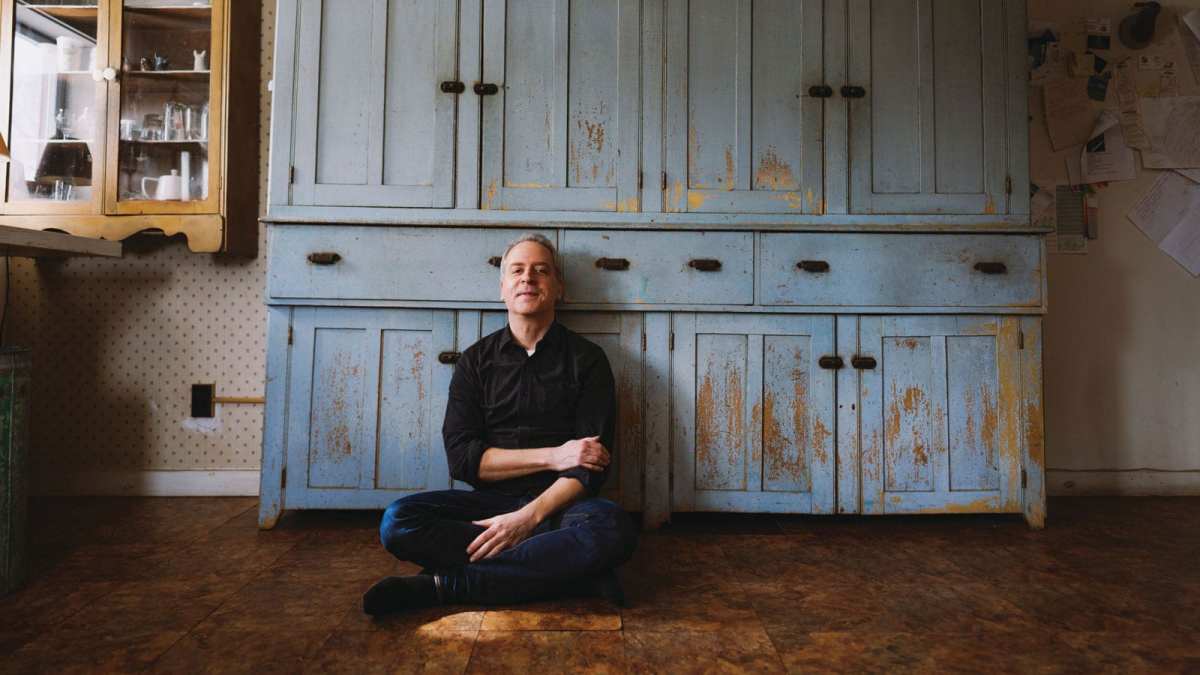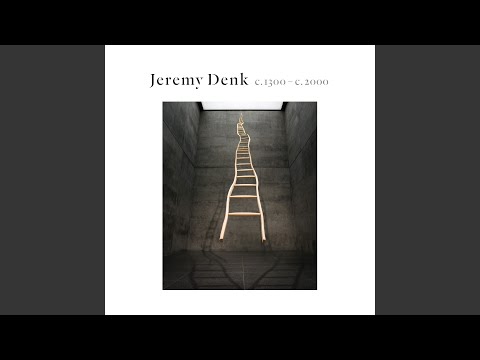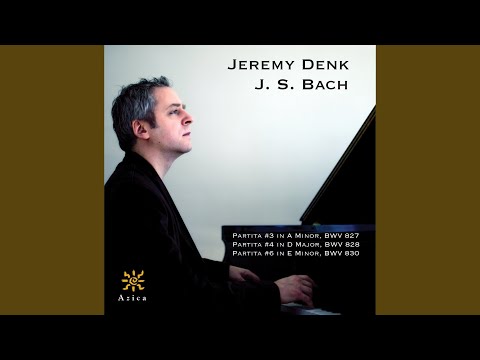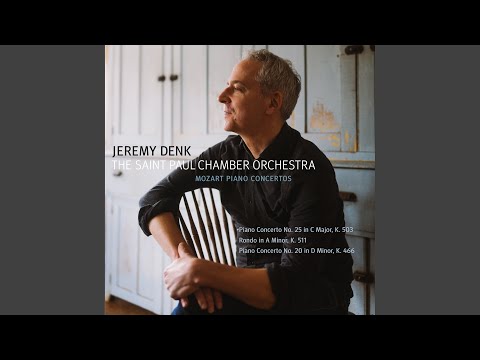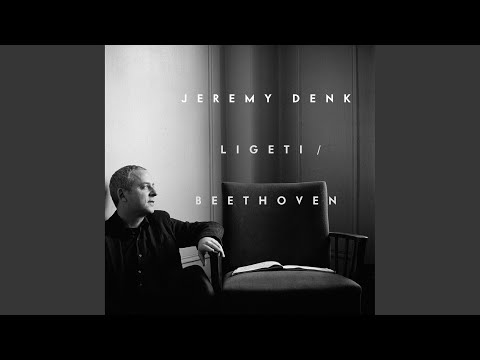Jeremy Denk may not have as high a profile as other classical pianists, but he has a deep range of accomplishments both inside and outside of music. Last year, Nonesuch released his latest recording: Mozart Piano Concertos with the St. Paul Chamber Orchestra (he plays No. 20 and 25, and the Rondo in A minor, K. 511). On March 22, Penguin Random House will publish Denk’s new book, Every Good Boy Does Fine: A Love Story in Music Lessons.
Group Denk into the category of “thoughtful” musicians, because when he plays he’s clearly thinking about the reasons for what he’s doing. More, he’s argumentative—in the sense of interrogating a piece and his own thinking about it. He recently spoke to me on the phone about the genre of his book, the boundaries between technique and musicality, and lessons he’s still learning—in essence, we discussed how to learn about music.
VAN: Your book is coming out next month. What does it mean for you to write a memoir?
I tried not to think of it as a memoir so much; but it is a memoir, right? I tried to think of it more as a depiction of all my teachers, and an extended love letter and thank-you to them. Then, in between these memoir bits, I wanted to do some writing about music that I thought would offer my own “lessons.”
What it’s meant for me is to get back in touch with all those people who helped me at crucial moments in my life, and [remember] what their revelations were. It’s about trying to unpack how I, in some ways, was a good student and in other ways, a very resistant student, and all those kinds of struggles [with myself and] other people over time.
It sounds like an artistic autobiography.
Basically, it covers from my first lesson—more or less age five—to my last official piano lesson—more or less age 26—with some diversions. I guess you could call it an artistic autobiography. I kind of regret the extent to which it became about myself, but it had to be extended. I hope that the parts that people respond to the most—the parts that I had the most fun writing—are these portraits of the various teachers, their characteristics, what they were after, and how they went about it.
So are you describing the lessons from the lessons that you’re writing about? Is it less about technique than it is about thinking through or understanding you’re doing?
Some of the lessons are about technique, and various ways that people tried to express to me fundamental principles of piano playing. There’s a little passage where I suddenly discover for myself something that people have been trying to tell me for years and years: That once you hit the key, any effort after is completely wasted. Some of the lessons are about that and the different ways that people try to make you learn these fundamental truths about the physics of piano playing. And of course, a lot of the lessons are about music. How to use the lessons with György Sebők, my Hungarian teacher in Bloomington? Those were about: How do you inhabit the language of a different composer? How would you define a [musical] line if you had to speak it [out loud]? How do you see it as truthfully as possible, so it runs the gamut [of expression]?
Do you take the reader with you on the process of discovering new music through your teachers? Is there any disillusionment with music that can happen in the process of studying it?
I think there’s not that much about being disillusioned about music. I went to summer music camp when I was 12 or 13, and I came back from that having “discovered” Stravinsky, you know, and a couple other modern composers. Suddenly I thought the “Rite of Spring” was pretty cool. I tried to explain that to my parents and failed to impress them. At Oberlin, when I was an undergrad, I was recruited to the contemporary music ensemble, and there I started to love new music precisely because it was so thorny, difficult, and almost unlistenable—I began to really appreciate that part of it.
I’d say a lot more of the book is… I always knew from a young age that I loved Mozart. But when I got to Sebők, and he started showing me, I sort of understood why.
That sounds like a valuable thing. When you discover why you enjoy certain music, do you enjoy it more?
That’s a fair way of putting it. You appreciate the craft. That’s one level. But what I’m writing about is how the craft reflects or bounces off things in life that we experience. There are a lot of moments in the book when I suddenly see the metaphorical connection between a musical thing and a life thing.
I think that was one of Sebők’s particular gifts, this use of metaphor. He explained things, he created all these amazing images for passages of music, but they never felt heavy-handed. They always allowed for a certain flexibility for the music to mean what it wanted to mean. But they also created these powerful connections to the wider cultural world, to wider experience. He had such a fascinating, emotional, and unusual life story, and that element was so clear, and the way that he talked about music was the combination of reserve and emotional release.
The latest from VAN, delivered straight to your inbox
Do you hear or respond to music differently now, having gone through life and gained some experience, knowledge, and hopefully personal wisdom?
I think that’s fair enough. The music acquires different layers of meaning as you grow older. And that’s such a beautiful thing for us. Music’s role is that it grows older with us.
Are there particular pieces that have grown older with you?
The last chapter of the book involves Mozart’s K. 503 [Concerto No. 25 in C Major]. That piece is an unusual combination of sadness and joy, an uncanny mixture of those two elements. I think that piece has spoken to me so much over the last 10 years or so. It’s a completely different Mozart from the one that I imagined when I was a child.
You took your last official lesson when you were 26. Since then, has your personal practice as a musician changed? Have you been teaching yourself? Are there certain things that you need to work on regularly?
I probably never felt like I’ve been so actively working on my playing as I have the last two to five years. It’s interesting, the book has made me revisit certain fundamental physical things that my teachers told me when I was 12 or 13—those are still relevant. I have had the great fortune of spending a tremendous amount of time in music. I get a lot of music lessons from my colleagues. Those are incredibly important. And with conductors, of course. I haven’t played that much for other pianists in recent years. That’s probably a failing of mine. But I watched them and I listened to them. And I tried to take lessons from that.
Are there any particular contemporaries who you learn from?
I have learned a lot at Marlborough from Richard Goode and Mitsuko Uchida, and I spent a lot of time watching them play close up. I take a lot of different things from different places. Watching someone like Uchida play: the way that she moves, the way that she uses her hands. Even YouTube videos… recently I was prepping the “Well-Tempered Clavier.” I was watching a lot of harpsichordists play, how they use their hands, including Pierre Hantaï. I still like plundering something I can use wherever I can get it.
In the book, there’s a bit about my obsession with Artur Schnabel’s recording of a Schubert Impromptu: The way he uses the rhythm creates a message that is so powerful, that many other pianists are incapable of doing. Ignaz Friedman is another one of my heroes… totally different ethos. But there’s this kind of joyous rhythmic freedom and generosity, wildness. That’s one of the things that I love. I steal from that as much as I can.
One of the things that Sebők taught me, maybe the most important, was that there isn’t really a line between technique and musicianship. We talk about them as somewhat separate things. They can partly be separated to think about them, but the way you move is the way that the music comes out, the way you move creates the gesture, the phrase—and that, the meaning of the truth of the phrase. It’s like being a ballet dancer.
When I’m teaching young pianists, I often focus on technique per se for a little bit. But usually there’s a quick transition to the why. Sebők was great at expressing this. Half the time when I’m teaching now, it’s things that Sebők told me, formulated in different ways.
Classical music is often perceived as a written tradition, based on documents like printed scores and books. What you’re talking about is the oral tradition of the music.
That’s right, and it’s very powerful, that current, both for good and for evil. I felt Sebők was a kind of conduit to a certain kind of musical truth that many other people didn’t have. And so part of the point of this book is to preserve that for people.
But there’s a funny little passage where he takes me into his office. And he’s explaining that someone wanted him to write a book of all his great wisdom. Put it all down. He’s like, “No, actually, my wisdom will never survive a book.” So I’m presuming to do what he refused to do.
These days, do you only practice what you’re going to perform, or is there music that you go back to just for yourself?
The “Well-Tempered Clavier.” That’s what I go back to these days in the morning, or even late at night, just dipping my toes into Book Two. Also Chopin, which is very good for my body. It’s like getting a giant oil change for my piano playing.
The “Well-Tempered Clavier” was meant as a didactic piece. Do you do anything differently when you’re playing it in front of an audience?
There are things I do differently intentionally and unintentionally in front of an audience. But you know, that word didactic is really a problem. Of course that’s what it is: a teaching piece. But people don’t like didacticism, that’s for sure. I guess, hopefully, piano teachers are laying down various rules or suggestions or constraints, right. But a lot of the time, lessons [should] involve stunning you into wonder, showing you something you never thought was possible, and then suddenly: Oh, there’s the music.
I think the “Well-Tempered Clavier” does that. It’s not just “How do you write a fugue? How do you play a fugue? How do you get your fingers to go?” Bach does all those things, but then so much is about the possibilities of harmony: How fucking great are seventh chords! The very first thing Bach does is show you all the seventh chords and say, “Listen to how incredible these are.”
When I play it, I certainly don’t think of didacticism. [It can be like a] demonstration in some ways: You’re a chemistry teacher, and you’re showing something in the lab. That element of teaching is so emotionally vivid. ¶
Subscribers keep VAN running!
VAN is proud to be an independent classical music magazine thanks to our subscribers. For just over 10 cents a day, you can enjoy unlimited access to over 875 articles in our archives—and get new ones delivered straight to your inbox each week.
Not ready to commit to a full year?
You can test-drive VAN for one month for the price of a coffee.

